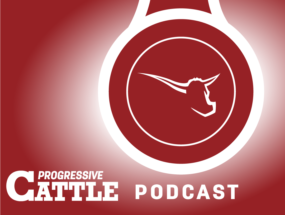California farmer ‘reluctantly’ settles controversial WOTUS case
As the EPA works to revise and replace the 2015 definition of “Waters of the United States” pursuant to an executive order signed by President Trump, a California case offers a reminder that even without the 2015 definition, the scope of the Clean Water Act can be concerning for agriculture.
In 2012, John Duarte purchased 450 acres north of Sacramento intending to sow wheat. The property had been in agricultural production for decades, being farmed prior to 1988, then grazed by cattle from 1988 to 2012.
When Duarte’s employee began to plow the field, the U.S. Army Corps of Engineers decided that low points in the field that collected water when it rained, referred to as “vernal swales,” constituted a Water of the United States, meaning that Duarte was required to obtain a federal permit under the Clean Water Act to plow his field.
The trial court sided with the Corps of Engineers, holding that the vernal swales were a WOTUS as they were hydrologically connected to a stream over 8 miles away that fed into the Sacramento River.
Additionally, the “normal, ongoing farming operation” did not apply to this property because plowing was not an ongoing operation during the years the property had been grazed prior to Duarte’s purchase.
Duarte initially appealed, but in August, Duarte issued a statement that “given the risks posed by further trial on the government’s request for up to $45 million in penalties …” he “reluctantly” agreed to settle the case.
Under the agreement, Duarte does not admit liability, but will pay civil penalties of approximately $300,000 and purchase mitigation credits of approximately $770,000. There are also various limitations on how he can farm the field going forward.
‘Ag gag’ statutes held unconstitutional, additional challenge filed
Statutes seeking to impose criminal penalties on activists who either trespass on farms or obtain employment through false pretenses to record undercover video of agricultural operations have repeatedly been deemed unconstitutional this year.
Most notably, federal district courts in Idaho and Utah have held that the states’ respective statutes violate the First Amendment Free Speech Clause and the 14th Amendment Equal Protection Clause of the U.S. Constitution.
The Idaho case is currently pending on appeal before the U.S. Court of Appeals for the 9th Circuit, and Utah announced that it will not appeal the lower court ruling. Additionally, in October, animal rights groups filed suit in Iowa, making similar challenges to that state’s “ag gag law.”
Tentative settlement reached in cases pitting corn farmers against Syngenta
Numerous cases across the U.S. were filed by farmers against Syngenta related to Syngenta’s release of genetically modified corn seeds containing the MIR-162 trait. Although the seeds were approved for planting in the U.S., they were not approved for China for exporting from the U.S.
When corn containing the MIR-162 trait was found in 2013 corn shipments, China rejected these shipments at the border. Shortly thereafter, corn prices fell. Plaintiffs from numerous states filed putative class action lawsuits against Syngenta, alleging they acted negligently in marketing and selling these seeds, causing corn prices to drop and monetary damages to producers who did not plant the seeds.
Most of the cases were consolidated in the multidistrict ligation court in Kansas. Nine classes were certified initially, with numerous other states with claims filed and certification pending. In June, the first trial awarded Kansas farmers nearly $217 million on a negligence claim.
With additional cases coming down the pike and a trial underway in Minnesota on similar claims, Syngenta announced in September that they had reached a tentative settlement of the lawsuits. Details have yet to be worked out and approved by the court, but Reuters News reported that the settlement amount was to be $1.5 billion.
Case limiting scope of Endangered Species Act reversed on appeal
The People for the Ethical Treatment of Property Owners won a huge trial level decision in Utah federal court in 2014, when the judge held that the Endangered Species Act could not apply to the Utah prairie dog since it was a purely intrastate animal.
This year, however, the U.S. Court of Appeals for the 10th Circuit reversed that decision. Specifically, the court found that Congress had a rational basis to conclude that the Endangered Species Act, in the aggregate, substantially affects interstate commerce. Plaintiffs are seeking review by the U.S. Supreme Court.
Flood of new lawsuits related to pesticide dicamba
Almost certainly, the biggest ag law news story this year involved claims of damage caused by pesticide drift from over-the-top application of dicamba on soybeans and cotton. With the development of genetically modified soybean and cotton plants that are tolerant to dicamba, many producers turned to this pesticide to help control resistant weeds. Throughout the country, there have been numerous lawsuits filed related to dicamba.
Several class action suits have been filed against Monsanto, the developer of Xtend soybean and cottonseeds and the corresponding XtendMax pesticide. Monsanto has filed a claim of its own in Arkansas against the Arkansas State Plant Board, which prohibited the use of the Monsanto product last year in the state, and which has imposed a April 15 deadline on application for 2018.
Lawsuits have also been filed against the EPA for approving the use of dicamba at all. In October, the EPA announced it was making numerous changes to the label for three new dicamba formulations, including XtendiMax and Engenia.
Most importantly, these pesticides will now be restricted-use, meaning a person will be required to have an applicator’s license and training to purchase the products. Additionally, changes have been made to maximum wind speeds, times when the product may be applied and record-keeping requirements will increase.
Court holds that agriculture is not exempt from federal air emissions standards
In April, a D.C. Circuit opinion involving air emissions and agriculture caused concern among many animal agriculture groups. The court in Waterkeeper Alliance v. EPA found that exemptions that excluded agriculture from reporting air emission requirements under federal CERCLA and EPCRA environmental statues were illegal. These statutes require reporting of “any release” into the air of hazardous substances above a certain threshold.
Now that agriculture is no longer exempt per the court’s ruling, this would include animal agricultural operations emitting hazardous substances from animal wastes. Unless an additional stay is issues, reporting will be required by Nov. 15, 2017.
In October, the EPA issued “guidance” on reporting releases of hazardous substances from animal waste, stating that releases of substances such as ammonia and hydrogen sulfide in an amount over 100 pounds of either from an entire farm per 24-hour period would trigger the reporting requirement. The guidance offers direction on how to calculate emissions from various animal operations.
Court finds that damage caused by manure excluded from insurance coverage containing ‘pollutant exclusion’
A Washington case offers an important reminder for ag producers to carefully read and understand liability insurance policies. This case was an insurance coverage dispute between a dairy farm, which was accused of polluting groundwater with inadequate manure storage and application practices, and their insurance company.
When the dairy contacted the insurer about the underlying lawsuit being filed, the insurer denied both indemnification and defense to the dairy, stating that claims related to manure were excluded from coverage pursuant to the “pollutant exclusion” clause in the insurance policy.
This is the second case in recent years reaching this conclusion and could have important impacts on ag operations facing claims of damage related to manure.
So that’s a wrap of the key agricultural legal issues for 2017. No doubt, 2018 will bring even more exciting news and cases. ![]()

-
Tiffany Dowell Lashmet
- Assistant Professor and Extension Specialist – Agricultural Law
- Texas A&M AgriLife Extension Service
- Email Tiffany Dowell Lashmet








